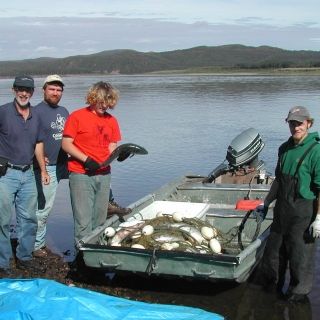
People Work
There is nothing more satisfying after a full day of work than shutting down my computer, turning off the office lights, and breathing in the fresh air as I walk from the office to my car. I can measure my work on the drive home by thinking through what I accomplished that day. Between the emails, crunching numbers, and completing projects, I have tangible evidence that I went to work, and it was worthwhile.
However, many SEND North team members do not experience this. Their work environment is not a desk space, and their work regularly cannot be measured. Their efforts, though as valuable as our own, are intangible.
A SEND member who started out on the business side of ministry, recently remarked on this when talking about his transition into SEND. When he and his wife joined SEND North, they realized their focus would have to be “people work.” People work all about building relationships and understanding the environment. Inherently, it is selfless because it requires putting other’s needs above your own time and monetary interests. In the Far North, many residents operate on their own time, and needs are immediate, creating unpredictable service opportunities.
Our hope at SEND North is to integrate with each village, which leads to the long-term commitment of our team members in each area. Too often, our members can build a positive relationship for years, and it will be suddenly lost because of the influence of family, alcohol, or health issues. It is easy, then, to feel unproductive or ineffective for our field members. Still, they do not give up on a person or turn them away just because they are too difficult: God desires every heart to know Him, and we are the tools for the task.
In the village, our members don’t punch in and out of work at any set time. They are frequently called in the middle of the night for help or asked to take the rest of their day to watch the neighbor kids. Through all of this, the goal of SEND North is true disciple-making, no matter how long it takes. Therefore we will invest all of our time, interests, and desire into building relationships among the native people. Our time, money, and effort all belong to the Lord.
Is the Lord calling you to people work? Pray with us; give with us; and go with us: to spread the Gospel in the Far North and beyond.
- Kelly Quist
Additional Posts




